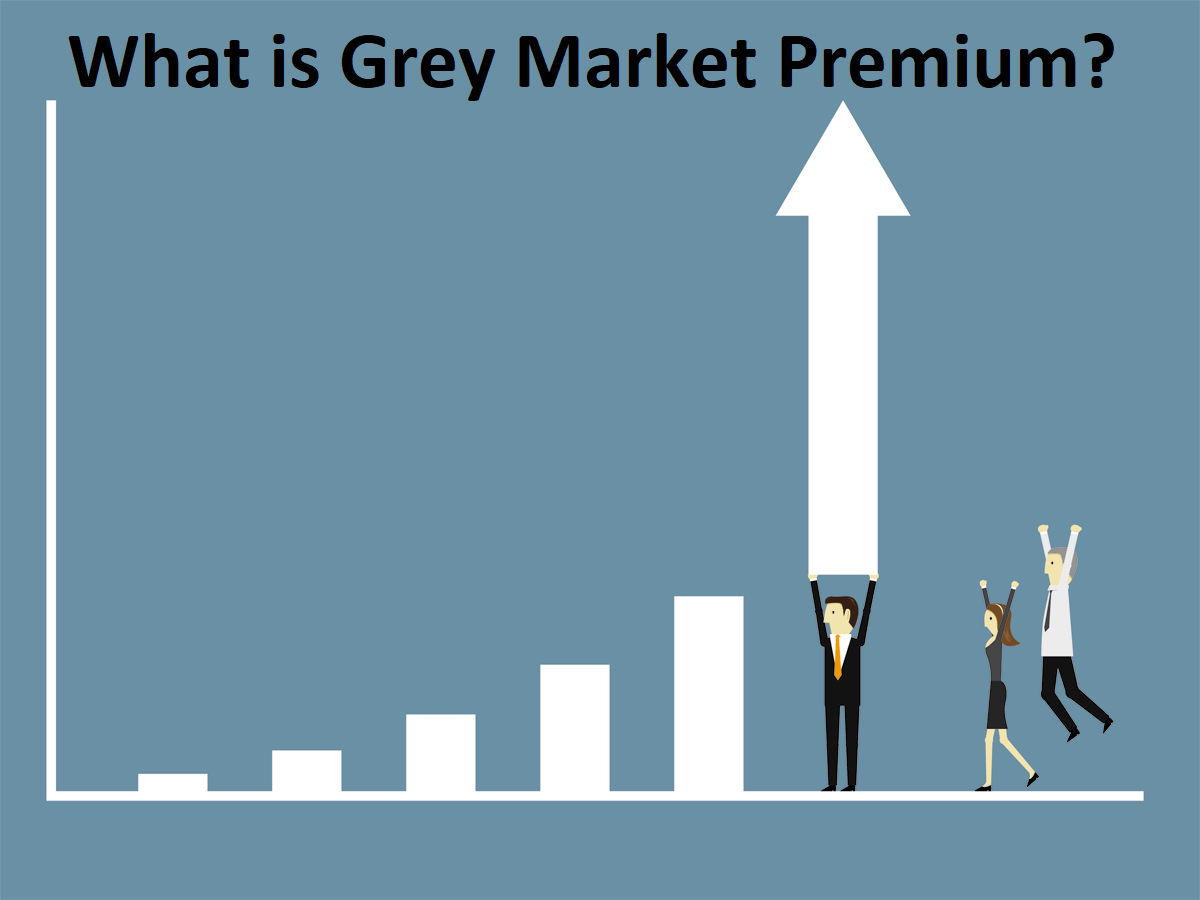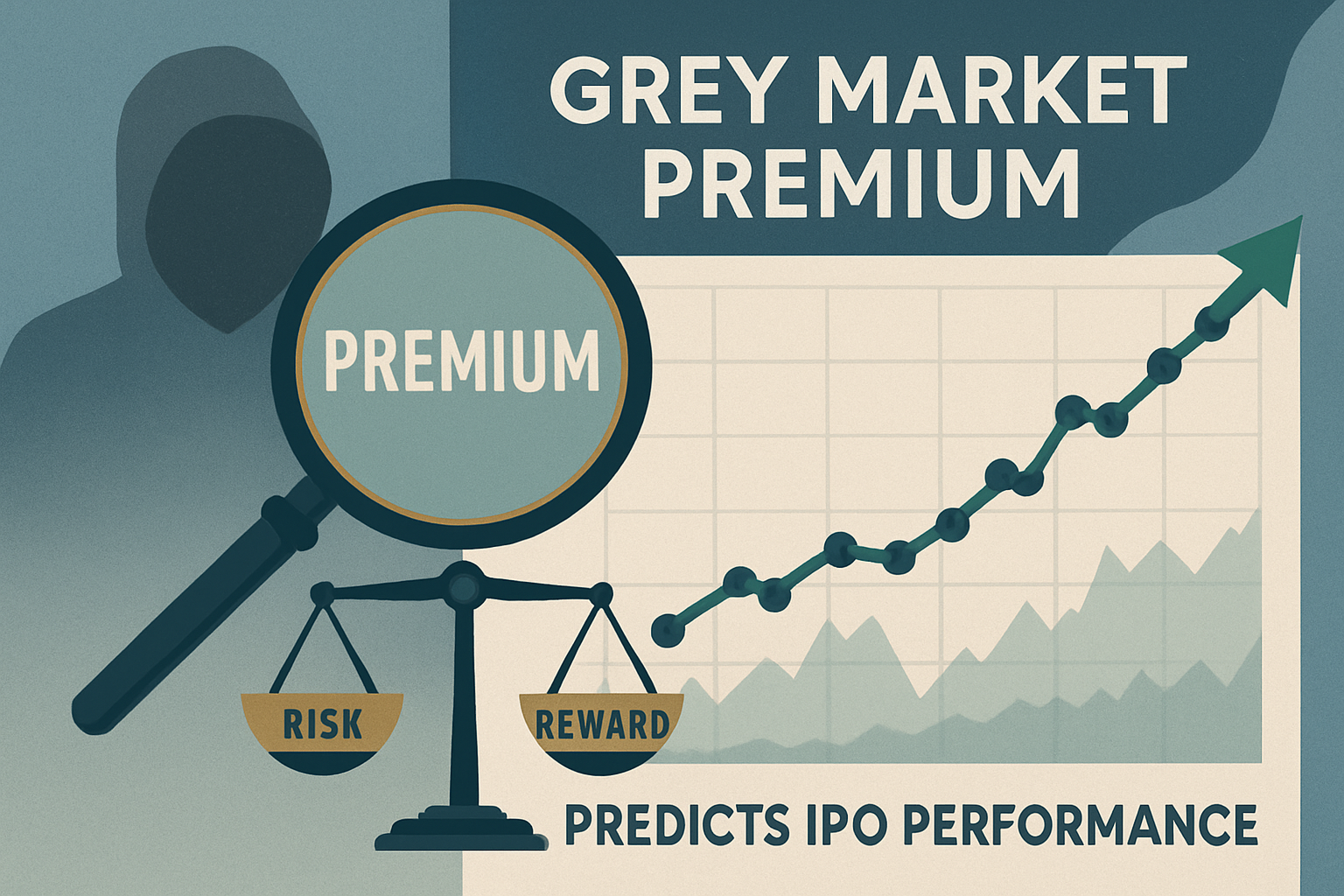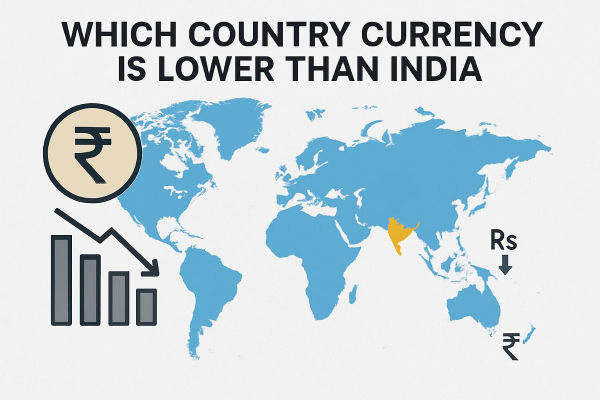Before many IPOs debut on official stock exchanges, shares are already being traded unofficially in the grey market, at a price above or below the IPO issue price.
The difference, known as the Grey Market Premium (GMP), is often viewed as a barometer of investor enthusiasm and demand. Although not official, the GMP is closely monitored by both retail and institutional investors, particularly in India, as it often aligns with gains made on the listing day.
In this detailed guide, we'll explore what GMP is, its calculation, how accurately it predicts IPO performance, and how you can use it wisely.
What Is Grey Market Premium (GMP)?

To simplify, Grey Market Premium (GMP) refers to the unofficial premium at which IPO shares are traded in the grey market before official listing. It reflects the perceived difference between the IPO issue price and what investors expect the listing price to be.
For instance, when investors expect the stock to debut at a higher price, GMP is positive; if the sentiment is moderate, GMP could be zero or even below zero.
Although unregulated and informal, GMP provides a snapshot of market sentiment before public trading begins, as it is fueled by the interest of wealthy individuals, retail investors, and institutional participants trying to assess the public's demand.
How GMP Works: Trading, Drivers, and Dynamics
The grey market is principally an unofficial OTC market where shares can be traded before listing. Sellers (typically IPO applicants) might sell their shares or application rights at a premium (referred to as the "Kostak rate"), while buyers are betting on profits on the listing day. These trades are not supervised by exchanges, regulators, or official channels.
GMP is influenced by factors including:
Overall market mood (bullish or bearish)
Company fundamentals and growth prospects
IPO subscription levels (QIB, retail)
Pre-listing news and analyst commentary
Industry comparables and peer valuations
Why GMP Predicts IPO Listing Returns
Studies, including a large-scale analysis of 270 Indian IPOs, reveal a strong positive correlation between GMP and performance on the listing day.
One widely cited study recorded a Spearman's rank correlation of 0.886 and demonstrated that predictive models based on GMP achieved roughly 83.7% accuracy in forecasting listing gains.
Another working paper highlights GMP's ability to reduce the winner's curse, a phenomenon where uninformed retail investors overpay and underperform, by offering a pre-listing reality check on price levels.
How GMP Estimates Listing Price

You can estimate a potential listing price by adding GMP to the upper band of the issue price. For instance, if the IPO price range is ₹100–₹120 and the GMP is ₹30, the implied listing price is ₹150.
Real-world examples:
NSDL IPO: GMP around ₹135–₹140 on a ₹800 upper band implies a 17% listing premium, consistent with positive first-day gains.
Shanti Gold IPO: GMP ~₹37 over ₹199 upper price band indicates projected gains of ~18.6%. Subscriptions reached over 80 times.
Aditya Infotech IPO: GMP with ~₹260 above ₹675 upper band indicates ~38.5% gains, but analysts warn of short-term valuation risks.
Accuracy and Limitations of GMP as a Predictor
While GMP is broadly reliable, it isn't foolproof. In rare situations, such as HDB Financial Services, GMP soared to 70–80% over the band, only to swiftly decrease before the listing, emphasising the gap between speculative valuations and underlying fundamentals.
Analysts noted the IPO repriced based on intrinsic valuation, not mere grey-market exuberance. Other risk factors include grey market mispricing driven by rumours, speculative hype, or thin liquidity in niche IPOs, leading GMP to overstate expected gains.
Firms may also deliberately disregard inflated GMP when pricing the issue, as seen in cautious pricing decisions.
Strategies for Investors Using Grey Market Premium Signals

1. Interpret GMP Alongside Fundamentals
Use GMP as a sentiment gauge, not a standalone valuation. Combine it with subscription data, financial strength, sector trends, and peer multiples to shape strategy.
2. Watch GMP Momentum
Tracking changes over time as stable, rising, or cooling GMP can signal shifts in sentiment. Case in point: HDB Financial's GMP fell from ~70% to ~7% as clarity emerged on pricing rationale.
3. Estimate Potential Listing Gains
Calculate implied listing gain using GMP plus the upper price band. Conservative investors may apply a discount of 5–10% to account for risk and overestimation.
4. Avoid Pre-Listing Trading Risks
While some speculate by trading application rights (Kostak rates), such transactions are unofficial, unregulated, and legally risky. Best practice: Depend on GMP for subscription decisions, not on unapproved trading.
5. Adjust Position Size and Expectations
Higher GMP often indicates a hype-driven IPO. Enter thoughtfully and allocate cautiously, keep profit targets reasonable, and exit quickly if listing fails to materialise as expected.
Risks and Contextual Considerations
Informality & Lack of Regulation
Grey market trades are contractually informal, lack legal protection, and are vulnerable to execution risk or fraud.
Market Reactions vs GMP Expectations
Even with high GMP, listing-day circumstances, such as broader market sentiment or regulatory changes, may lead to a lower-than-expected debut price.
Sector & IPO Variation
Some sectors (e.g., profitable NBFCs vs speculative tech plays) show different GMP-to-listing gain patterns. Consistently review historical IPO patterns within the industry.
Hype vs Sustainability
Morning GMP spikes often fade near the pricing date or on listing day. Retail investors should avoid chasing high GMP levels without substance to back them.
Frequently Asked Questions
1. What Is Grey Market Premium in IPOs?
Grey Market Premium (GMP) is the unofficial price at which IPO shares trade before their official listing. It reflects market sentiment and the expected listing price compared to the IPO issue price.
2. Can GMP Predict IPO Listing Price Accurately?
Yes, to a large extent. A high and stable GMP often signals strong demand and a potential listing gain. However, it's not a guaranteed predictor and should be used with fundamentals and subscription data.
3. Is Trading in the Grey Market Legal?
Grey market trading is not official and lacks regulation. Although not explicitly illegal everywhere, it involves risks such as the absence of legal remedies, counterparty failure, and regulatory supervision.
Conclusion
In conclusion, Grey Market Premium offers a powerful and often underappreciated insight into the likely initial performance of IPOs. While unofficial, it's supported by research showing a strong correlation with listing day gains.
Yet GMP should not replace due diligence; in cases where GMP diverges from fundamentals or cools sharply, relying solely on it can lead to disappointment. The best approach is to consider it as one of several options in the IPO decision toolkit.
Disclaimer: This material is for general information purposes only and is not intended as (and should not be considered to be) financial, investment or other advice on which reliance should be placed. No opinion given in the material constitutes a recommendation by EBC or the author that any particular investment, security, transaction or investment strategy is suitable for any specific person.









